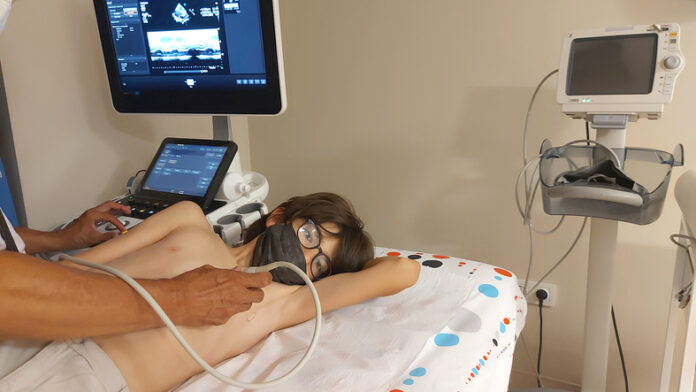
A study led by Children’s National Hospital in Washington shows that artificial intelligence (AI) is able to diagnose early-stage rheumatic heart disease as accurately as expert cardiologists based on an analysis of echocardiograms.
Rheumatic heart disease kills almost 300,000 people per year, mostly in low- and middle-income countries. It occurs mostly in children or young people as a result of heart damage after rheumatic fever, which is an immune reaction to group A streptococci infections.
Importantly, if detected early, rheumatic heart disease can be successfully treated with antibiotics. This makes early diagnosis critical for those affected.
In many countries where rheumatic heart disease remains a problem, getting access to cardiac specialists can be difficult. For this reason, Kelsey Brown, a pediatric cardiology fellow at Children’s National Hospital, and colleagues tested the power of convolutional neural networks for diagnosing early rheumatic heart disease compared with experts.
As reported in the Journal of the American Heart Association, Brown and colleagues used 511 echocardiogram images of children to test the efficacy of the AI. Of the group, 282 had rheumatic heart disease and 229 did not.
The AI was trained to pick out almost 40 difficult to detect features of echocardiograms seen in the hearts of children with early-stage rheumatic heart disease and, in particular, to look for signs of mitral valve regurgitation where the heart valve doesn’t close properly.
The technology was able to detect mitral regurgitation in around 90% of the children, which is of similar accuracy to that diagnosed by expert cardiologists.
“This technology has the potential to extend the reach of a cardiologist to anywhere in the world,” said Brown, MD, first and co-lead author on the paper, in a press statement.
“In one minute, anyone trained to use our system can screen a child to find out if their heart is demonstrating signs of RHD. This will lead them to more specialized care and a simple antibiotic to prevent this degenerative disease from critically damaging their hearts.”
In the first half of this year, co-lead author Craig Sable, interim division chief of Cardiology at Children’s National Hospital, and partners will begin a project to start using the AI technology in clinics in Uganda, to try and detect and treat early-stage rheumatic heart disease cases before they show severe symptoms.
“One of the most effective ways to prevent rheumatic heart disease is to find the patients that are affected in the very early stages, give them monthly penicillin for pennies a day and prevent them from becoming one of the 400,000 people a year who die from this disease,” said Sable.
“Once this technology is built and distributed at a scale to address the need, we are optimistic that it holds great promise to bring highly accurate care to economically disadvantaged countries and help eradicate RHD around the world.”












